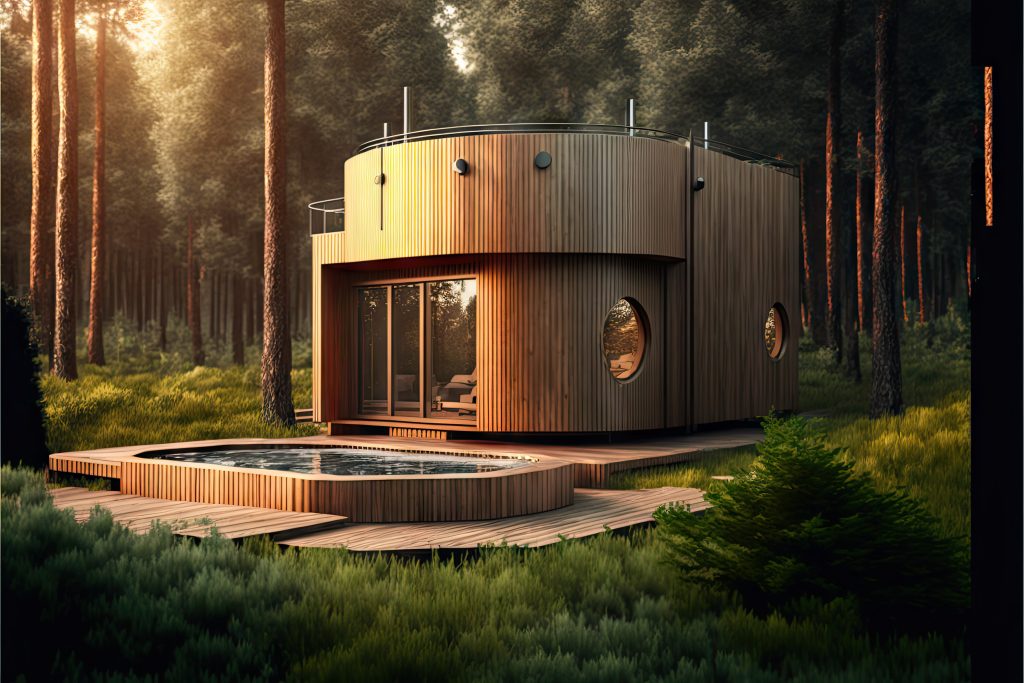
At New Funding Resources, we work with real estate investors across Washington, DC, Maryland, and Virginia who are constantly searching for their next profitable deal. In a crowded marketplace, some of them are turning to unique or unconventional properties—historic homes, converted barns, off-grid retreats, and agricultural land like farms—to stand out.
However, these distinctive properties often come with risks that are not immediately apparent—especially for investors accustomed to dealing with standard fix-and-flip or buy-and-hold projects. At New Funding Resources, we’ve worked with a number of investors who have taken on unique deals. Some have found great success, while others have learned costly lessons. If you’re considering a property that’s out of the ordinary, it’s important to understand the potential pitfalls before diving in.
Limited Buyer and Renter Pool
Unique properties tend to appeal to very specific audiences. Whether it’s a dome house in Western Maryland or a vineyard in Loudoun County, you’ll face a narrower pool of buyers or tenants. This limited market can lead to longer holding times, increased marketing costs, and more price negotiation during resale. While that glass-walled mountaintop home may photograph beautifully, it might sit on the market far longer than a standard three-bedroom colonial.
Appraisal and Insurance Gaps
Appraisal and insurance issues are also common with unique properties. Because these homes often defy comparison, appraisers may either undervalue or overvalue them, making it difficult to determine the true market worth. Insurance, too, can be tricky—especially for rural properties, older structures, or non-standard builds. Not every insurer will write policies for these homes, and those that do may charge significantly higher premiums. Before closing on any unique investment, it’s critical to secure firm insurance quotes and work with an appraiser familiar with the local market and property type.
Zoning & Legal Restrictions
From accessory dwellings to tiny homes, the DMV region has a patchwork of zoning laws. In some counties, even temporary rentals or event hosting may require permits or zoning variances. A property may appear to have a certain use on paper, such as a guest cottage or detached studio, but in practice, that use may not comply with current zoning laws. This is especially true in rural and suburban areas where regulations vary by county. Investors must conduct thorough due diligence and consult with local zoning offices to confirm what is allowed—and what is not—before they close.
Agricultural properties, such as working farms or land zoned for commercial or rural use, introduce a different set of complexities. In states like Maryland and Virginia, many parcels fall under land preservation agreements or conservation easements. These legal tools limit development potential and can restrict how the property is used in the future. Even if land is not encumbered by such agreements, zoning laws can dictate whether it can be subdivided, rented out, or developed further. In some counties, turning a farm into a short-term rental, event space, or agri-tourism venture requires multiple permits and compliance with strict local codes.
Renovation and Maintenance Surprises
Renovating these types of properties can also present unexpected costs and challenges. Unique homes may have unusual layouts, custom materials, or outdated systems that are expensive to replace or bring up to code. For example, restoring a 19th-century farmhouse with original woodwork and antique fixtures requires a different contractor skill set—and a much larger budget—than a standard cosmetic rehab in the suburbs. Investors should plan for longer renovation timelines and more expensive labor.
Marketing Takes Extra Effort
Even after overcoming these hurdles, marketing and selling a unique property often requires additional time and strategy. Because there are fewer potential buyers, marketing must be targeted and often more creative. Properties like these are well-suited for lifestyle marketing, including drone video tours, social media ads, and listings on niche real estate platforms. Investors who succeed in this space are not just savvy with numbers—they know how to sell a vision.
Financing Challenges
Financing is another major obstacle. Traditional lenders often struggle with properties that don’t fit a conventional mold or lack comparable sales. Even hard money lenders, known for their flexibility and speed, can be hesitant to finance unique properties—and for good reason. While these lenders typically base their decisions more on asset value than borrower credit, the fundamental risk still lies in one thing: The reason is simple: exit risk. These properties are hard to value, tough to resell, and often come with zoning or renovation headaches. If a lender can’t confidently recover their money in a worst-case scenario, they may walk away—or offer much stricter terms.
That said, not every unique property is a risky investment. With the right financing, professional support, and a clear understanding of the challenges, unique homes and land can be highly profitable. They often attract media attention, perform well as short-term rentals, and provide lasting value when purchased below market due to their unconventional nature. For investors willing to think outside the box—and willing to do the legwork—these properties can offer less competition and more upside.
At New Funding Resources, we understand that not every great opportunity fits in a traditional box. That’s why we specialize in fast, local, common-sense funding for real estate investors in the DMV area. Whether you’re buying a historic home in DC, renovating a barn in rural Virginia, or expanding a farm in Southern Maryland, our hard money loans help you move quickly and close with confidence—even on the most unconventional properties.
Ready to fund your next unique investment? Apply for a hard money loan today or contact us here to speak with a local lending expert.
 New Funding Resources
New Funding Resources 





Leave a Reply